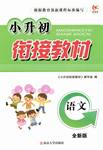题目内容
【题目】In order to know a foreign language thoroughly, four things are necessary. Firstly, we must understand the language when we hear 【1】 spoken. Secondly, we must be able to speak it ourselves correctly with confidence and without hesitation. 【2】 , we must be able to read the language, and fourthly, we must be able to write it. We must be able to make sentences that are grammatically correct.
There is no easy way to success 【3】 language learning. 【4】 good memory is a great help, but it is not enough only 【5】 (memorize)rules from a grammar book. It is not much use learning by heart long lists of words and their 【6】 (mean), studying the dictionary and so on. We must learn by using the language.
【7】 we are satisfied with only a few rules we have memorized, we are not really learning the language. Learn through use is a good piece of 【8】 (advise) for those 【9】 are studying a new language. Practice is important. We must practise speaking and 【10】 (write) the language whenever we can.
【答案】
【1】it
【2】Thirdly
【3】in
【4】A
【5】to memorize
【6】meanings
【7】If
【8】advice
【9】who
【10】writing
【解析】
试题分析:考查动词名词等,并且注意正确形式。
【1】it。指代前面的a foreign language。
【2】Thirdly。由Firstly,Secondly可知此处是第三点。
【3】in。success in sth可知填in。
【4】A。memory为可数名词。
【5】to memorize。由后文可知不定式作真正主语。
【6】meanings。words和meanings对应,都是可数名词。
【7】If。由题意可知前后是条件关系,所以此处用if。
【8】advice。一条建议, 此处应用名词,advice不可数名词。
【9】who。引导定语从句, 先行词是those。
【10】writing。practise doing sth固定搭配,练习做…,所以填writing。

 学而优衔接教材南京大学出版社系列答案
学而优衔接教材南京大学出版社系列答案 小学课堂作业系列答案
小学课堂作业系列答案